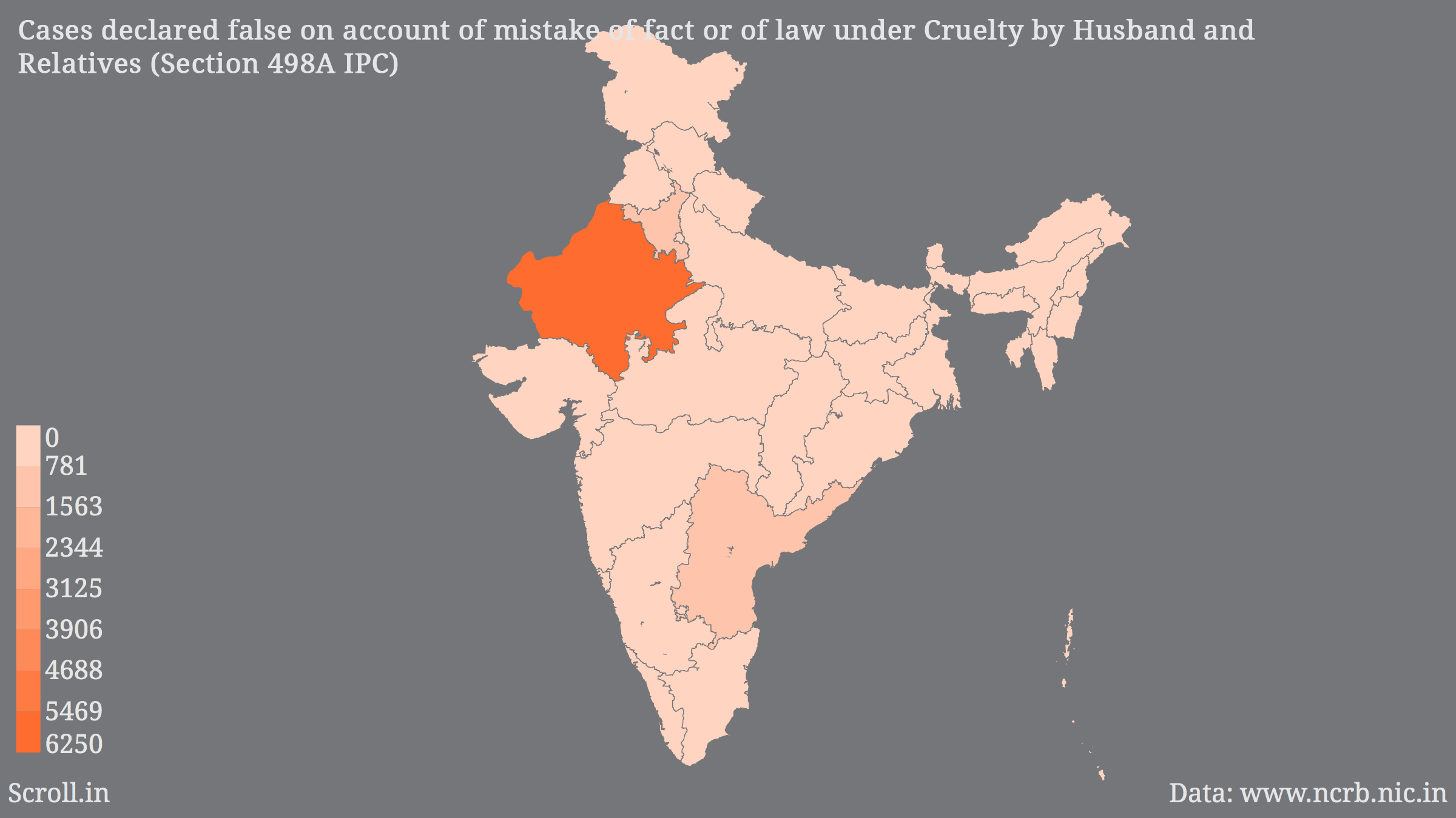The court observed, “The fact that Section 498-A is a cognizable and non-bailable offence has lent it a dubious place of pride amongst the provisions that are used as weapons rather than [a] shield by disgruntled wives. The simplest way to harass is to get the husband and his relatives arrested under this provision. In quite a number of cases, bed-ridden grandfathers and grandmothers of the husbands, their sisters living abroad for decades are arrested. ‘Crime in India 2012 Statistics’ published by National Crime Records Bureau, Ministry of Home Affairs shows arrest of 1,97,762 persons all over India during the year 2012 for offence under Section 498-A of the IPC, 9.4% more than the year 2011. Nearly a quarter of those arrested under this provision in 2012 were women i.e. 47,951 which depicts that mothers and sisters of the husbands were liberally included in their arrest net. Its share is 6% out of the total persons arrested under the crimes committed under Indian Penal Code. It accounts for 4.5% of total crimes committed under different sections of penal code, more than any other crimes excepting theft and hurt. The rate of charge-sheeting in cases under Section 498A, IPC is as high as 93.6%, while the conviction rate is only 15%, which is lowest across all heads. As many as 3,72,706 cases are pending trial of which on current estimate, nearly 3,17,000 are likely to result in acquittal.”
Here is a closer, state-wise look at those numbers, and also the numbers regarding dowry deaths.
Of 1,06,527 498-A cases registered in 2012, 10,235 – around 10% – were “Cases declared false on account of mistake of fact or of law” in 2012. A closer, state-wise look at that number shows that 6,241, around 60%, of the cases declared false were from Rajasthan alone. The second largest number after that, 1,049, was from Andhra Pradesh.

Between 2005 and 2012, 63,171 women were killed in dowry-related incidents. That translates to more than one death every hour. For that many dowry deaths, the number of cases found to be false is relatively small. Such cases were concentrated in Bihar, Uttar Pradesh and Rajasthan.











